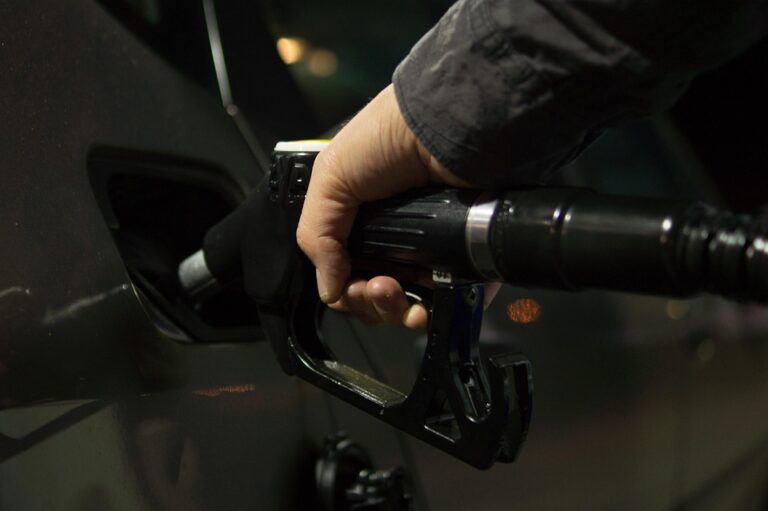Environmental Impact: Diesel vs. Petrol – What’s Greener?
Introduction
As climate change and environmental sustainability take precedence in global discussions, car owners and potential buyers are faced with a pressing question: which fuel type is better for our planet—diesel or petrol? The debate continues as both fuels have their merits and drawbacks. This article dives into the environmental impact of diesel and petrol, providing you with insights to make an informed decision.
Diesel vs. Petrol: The Fundamentals
When discussing diesel vs. petrol, it is essential to understand how each fuel type functions in vehicles. Petrol, commonly known as gasoline, ignites through a spark in the engine, while diesel is compressed to a higher degree, allowing for ignition due to heat. This fundamental difference yields varying performance levels, fuel efficiency, and emissions.
Fuel Efficiency and Carbon Emissions
One of the primary benefits of diesel engines is their fuel efficiency. Diesel vehicles generally offer better mileage than their petrol counterparts. According to studies, a diesel engine can be up to 30% more fuel-efficient, translating to lower consumption for the same distance traveled. This increased efficiency often means fewer carbon emissions per mile driven. However, diesel engines produce higher nitrogen oxide (NOx) emissions and particulates, which have harmful effects on air quality.
Conversely, petrol engines typically emit more carbon dioxide (CO2) per liter of fuel burned. However, advancements in technology, such as catalytic converters, have greatly reduced harmful emissions. Therefore, while petrol cars have higher CO2 emissions, they often contribute less to smog and particulate matter compared to diesel.
Pollution and Air Quality
Urban areas particularly face challenges concerning air quality. Diesel vehicles are known for their NOx emissions, which contribute to the formation of ground-level ozone, a significant air pollutant. Elevated levels of NOx are linked to respiratory issues and other health problems in city-dwellers, particularly in densely populated regions.
In contrast, petrol vehicles generally have lower NOx emissions. As urban centers become more congested, the impact of diesel vehicles on public health has become a pressing issue, leading some cities to enforce regulations limiting diesel usage.
Lifecycle Emissions: From Production to Disposal
The environmental impact of diesel versus petrol extends beyond just driving emissions; it stretches into the entire lifecycle of the fuels.
Production and Refining
The production of petrol and diesel fuels involves extraction, refining, and transportation, each stage bearing its environmental consequences. Crude oil extraction, essential for both fuel types, poses risks such as oil spills and habitat destruction. Additionally, refining processes consume significant energy and generate pollutants.
Studies have shown that the lifecycle emissions of petrol and diesel can vary widely based on the sourcing and refining practices employed. Renewable options, like bio-diesel, are becoming increasingly popular as they can reduce the overall carbon footprint associated with these fuels.
The Disposal Dilemma
When vehicles reach the end of their life cycle, proper disposal and recycling are critical. Diesel cars tend to have a longer lifespan due to their robust construction, but their components, such as batteries and fluids, can be hazardous if not disposed of correctly. Petrol engines are generally lighter and can be less durable, but they also present disposal challenges.
Future Trends: Alternative Fuels
Both diesel and petrol are facing scrutiny as electric vehicles (EVs) and alternative fuels gain popularity. EVs promise significant reductions in emissions when paired with renewable energy sources, leading many governments to provide incentives for EV adoption.
Hydrogen fuel cells and biofuels are also being explored as greener alternatives to diesel and petrol. However, both technologies are in varying stages of development, with significant infrastructure challenges that still need to be addressed.
Conclusion
In the ongoing diesel vs. petrol debate, determining which fuel is "greener" depends on several factors, including vehicle type, emissions, and personal driving habits. Diesel engines prove advantageous in fuel efficiency but raise concerns regarding NOx emissions and air quality. Petrol, while more CO2-intensive, has benefited from technology aimed at reducing harmful emissions.
Ultimately, the answer may not be as clear-cut as we would like. As we move toward a future that embraces cleaner technologies, it is crucial to consider the broader context of transportation and the role of alternative fuels. As an informed consumer, consider your driving needs, the local environment, and the advances in cleaner alternatives that may best suit your lifestyle.
For more insights on nurturing a more sustainable driving experience, check out our articles on electric vehicles and alternative fuel technologies. Together, we can make a greener choice for our planet.


